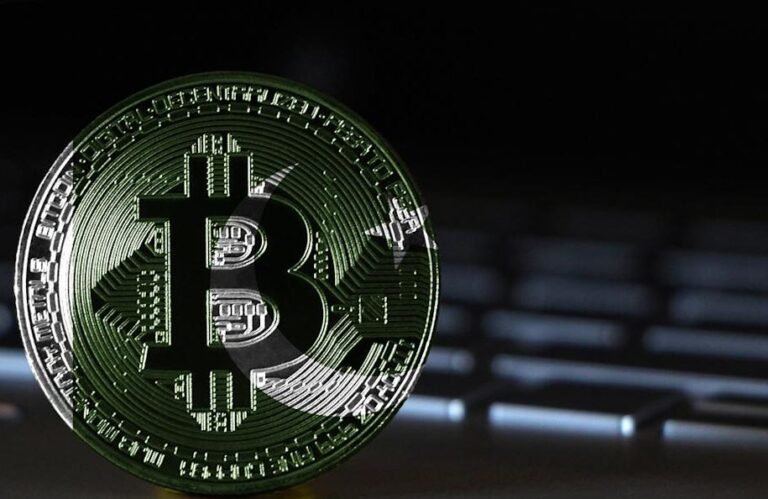About its posture on cryptocurrency, Pakistan is sending conflicting signals. One could argue that state-affiliated agencies of the nation are supposed to build a Bitcoin reserve, thereby indicating a shift in strategic asset management. Conversely, the Ministry of Finance and the State Bank of Pakistan (SBP) still formally forbid trading and using cryptocurrencies inside Pakistan. This contradictory message has left people, investors, and foreign observers perplexed over the actual path of crypto policy for the country.
This paper investigates the geopolitical, financial, and legal issues affecting Pakistan’s complex relationship with Bitcoin and broader blockchain technologies. We also explore the likely reasons behind the reserve plan, to clarify for both Pakistani crypto consumers and the global market what this implies.
Pakistan Explores Bitcoin Reserve for Economic Stability
A proposal by Pakistani government-backed IT consultants to establish a Bitcoin reserve by the Securities and Exchange Commission of Pakistan (SECP) has generated current headlines. According to the scheme, Pakistan’s Ministry of Information Technology and Telecommunication works with blockchain industry consultants to investigate sovereign digital assets as part of a diversification strategy.
Global trends, where nations such as El Salvador, Russia, and Iran have turned to Bitcoin as either a reserve asset or a means of evading economic sanctions, influence the concept. Given Pakistan’s persistent foreign exchange reserve issues, a digital store of value like Bitcoin seems appealing, especially given the constant devaluation of the Pakistani Rupee (PKR).
Complementing this momentum is the Special Investment Facilitation Council (SIFC), which was established to attract external capital and foster digital innovation. Although the SIFC has not formally supported the Bitcoin reserve, the council has demonstrated a willingness to modernise the nation’s financial landscape by utilising Web3, blockchain, and fintech technologies.
Still banned, Crypto legal reality
Although there is considerable discussion about Bitcoin reserves, Pakistan’s legal system remains unfriendly to cryptocurrencies. Early in 2023, the SBP reaffirmed its ban on mining, trading, and possessing digital currency. This results from an earlier circular released in April 201, which forbade banks and financial organisations from providing virtual currency-related services.

Emphasising that cryptocurrencies compromise the KYC (Know Your Customer) and AML (Anti-Money Laundering) systems, as well as pose threats to financial stability, the Ministry of Finance supports this stance. Pakistan’s placement on the Financial Action Task Force (FATF) grey list for years has only served to heighten the government’s determination to prevent actions likely to compromise its global reputation.
This paradox, where the government is investigating a Bitcoin reserve while also outlawing crypto locally, reflects a policy discord. It also reflects the difficulties that other countries face when attempting to maximise the potential of blockchain while maintaining strict control over monetary sovereignty.
Strategic Driving Force for a Reserve of Bitcoins
Economically, a Bitcoin reserve might have several uses for Pakistan. It can initially serve as an inflation hedge. Given Pakistan’s rapidly declining PKR and regularly double-digit inflation rates, Bitcoin offers a non-sovereign store of value that is resistant to local macroeconomic mismanagement.
Second, a national Bitcoin reserve might enable Pakistan to draw in foreign direct investment (FDI) from Web3 startups and crypto-centric companies. Demonstrating openness to blockchain technologies can help Pakistan establish itself as a hub for decentralised finance (DeFi), cryptocurrency mining infrastructure, and blockchain research and development centres.
Third, such a reserve might provide geopolitical leverage. Pakistan could investigate the use of Bitcoin in cross-border settlements, similar to Iran and Venezuela, especially with trading partners like China, Turkey, and Gulf nations, to reduce its reliance on the US Dollar (USD).
Public Misunderstandings and Investor Opinion
Local investors are left in uncertainty by the contradictory government messages. Often, via unofficial means, many Pakistani crypto consumers access the market through peer-to-peer (P2P) platforms such as Binance, KuCoin, and LocalBitcoins. A lack of control has led to a grey market where scams and crypto fraud are prevalent, thereby raising concerns about consumer safety.
Pakistan boasts a vibrant young population, and an increasing number of them are interested in blockchain jobs, NFTs, and decentralised applications (dApps). Apart from stifling creativity, the restriction runs the danger of driving tech talent overseas, especially to crypto-friendly cities like Dubai, Singapore, and Estonia.
Should the government keep its conflicting posture, Pakistan’s reputation among Web3 developers seeking stability in regulation and foreign tech investors could suffer.
Regulatory Future: Is Pakistan Capable of Regulating
Experts believe Pakistan’s ultimate plan may be similar to India’s—first, fostering mistrust; then, implementing a regulatory sandbox; and finally, establishing a formal tax and licensing system. The central bank of Pakistan has already begun investigating a Central Bank Digital Currency (CBDC), which could provide a link to distributed assets like Bitcoin and help acquire more control over digital financial systems.
Pakistan must revise its cybercrime laws, enhance its anti-money laundering (AML) systems, and establish a cryptocurrency regulatory entity capable of handling everything from taxation to token listings if it is to succeed.
The challenge lies in striking a balance between the need for innovation and global relevance, while maintaining financial control. Building a Bitcoin reserve while banning it may serve short-term strategic purposes, but also undermines economic policy confidence.
Global Context and Analogues
The fascination Pakistan shows with a Bitcoin reserve aligns with a larger global story. Countries dealing with economic sanctions, capital flight, or currency devaluation are increasingly turning to cryptocurrencies as alternatives to traditional monetary instruments.
Since making Bitcoin legal tender in 2021, El Salvador has bought around 2,800 BTC. Russia has suggested trading Bitcoin internationally as a means to circumvent Western sanctions. To maintain a digital edge, even the People’s Bank of China (PBoC) is accelerating its development of the Digital Yuan, despite outlawing crypto trading.
Pakistan appears to be employing a strategic bifurcation approach, restricting public crypto use while utilising blockchain at the sovereign level.


